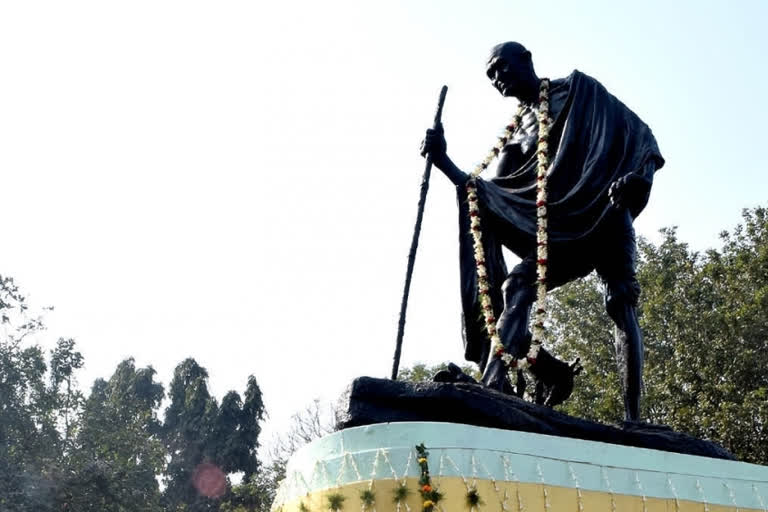New Delhi: As we celebrate the 150th birth anniversary of the Father of the Nation, apart from the official ritual so routinely and uninspiringly performed on October 2 every year, our minds are filled with sadness over the utter disregard shown to Gandhiji’s ideals during the last seventy-two years and considerable anxiety about the future of India. In this age of globalization, reckless spending and lavish living those who talk of Gandhian ideals, even if it is for an hour before a small gathering, might be labelled uncivilized and medieval in their mindset.
But the bright new younger generation who constitute more than fifty percent of India’s billion-plus population and who are ordained by destiny to shape India’s future in the first century of the new millennium would certainly love to know about the legacy the Mahatma bequeathed to us and the relevance of Gandhian ideals and values. Today’s youth may be in a great hurry to achieve their goals through hard and innovative work despite being hard-pressed for time. But they are also sensible enough to apply their sensitive minds to learn about the roots of our culture and the value foundations of our system so that course correction, wherever and whenever necessary, can be done without further delay. The younger generation would feel proud to know that the greatest minds of the last century, scientists like Einstein, philosophers like Russell, literary giants like Bernard Shaw and Nobel laureates of different hues, saw in Gandhi a beacon, an extraordinary light that would show humankind a way out of the darkness.
Likened to the Buddha and Jesus Christ, Gandhi lived and died for the poor, the entire humanity. The words of an Arab poet, Mikhail Noema quoted in Rajmohan Gandhi’s classic Mohandas, sum it up : “the spindle in Gandhi’s hand became sharper than the sword; the simple white sheet wrapping Gandhi’s body was an armour plate which guns from the fleet of the Master of the Seas could not pierce and the goat of Gandhi became stronger than the British Lion.”
We need to answer the basic question that every youngster is asking today seven decades after India became free. Is this the Independence for which Mahatma Gandhi and other leaders fought and which we celebrate pompously twice a year on August 15 and January 26? What are our leaders so religiously praying for on October 2 and January 30, sitting in front of the Rajghat in Delhi and Gandhi statues all over the country? What according to Gandhi was Swaraj or Independence? Would the Father of the Nation have rejoiced at India’s achievements if he were living in our midst today?
They need to be told that Swaraj for Gandhi was the empowerment of the weak and the disadvantaged sections of the society. Sad but true almost as many people as those who woke to freedom on August 15, 1947, about 330 million, are today living below the poverty line! Independence, Gandhi defined, means ‘self- mastery, self –discipline’, not the greed and selfishness that permeate every walk of life and every branch of government. Commending the Gandhian philosophy of simple living and high thinking Aldous Huxley had warned not only India but the entire world not to suppose ‘that technology and organization could turn the petty human animal into a superhuman being and could provide a substitute for the infinities of spiritual realization.”
From May 1893 on that cold night in Pietermaritzburg in South Africa when he was thrown out of a railway compartment till that fateful Friday, January 30, 1948 when the treacherous assassin’s bullets killed him, Gandhi’s life was a fight against violence, greed, injustice and exploitation. Probably no single individual in human history suffered and sacrificed for so long and so intensely as Gandhiji did. That is why young minds of today, like the great Einstein prophesied, would rub their eyes in disbelief hearing the Gandhi story. And we, the fading generation, have a duty to tell the younger generation of what little we know and how much we all and the future generation owe to Mahatma Gandhi.
READ: Ration cards should be categorised based on purpose: Mamata



